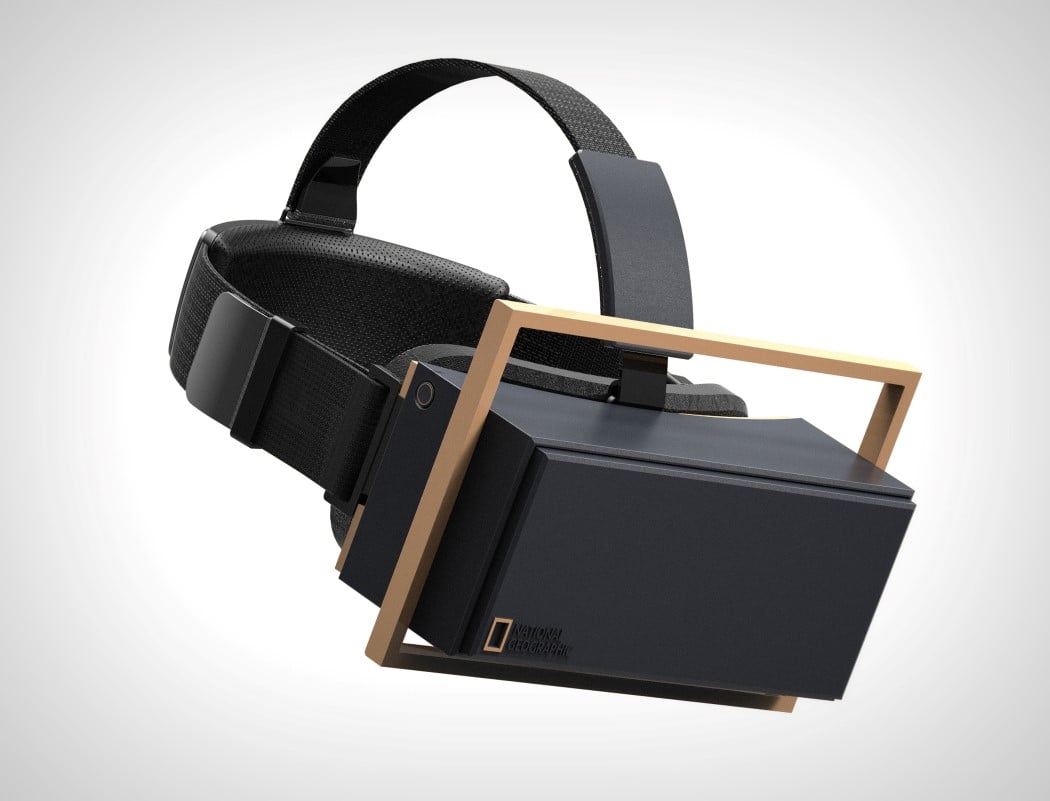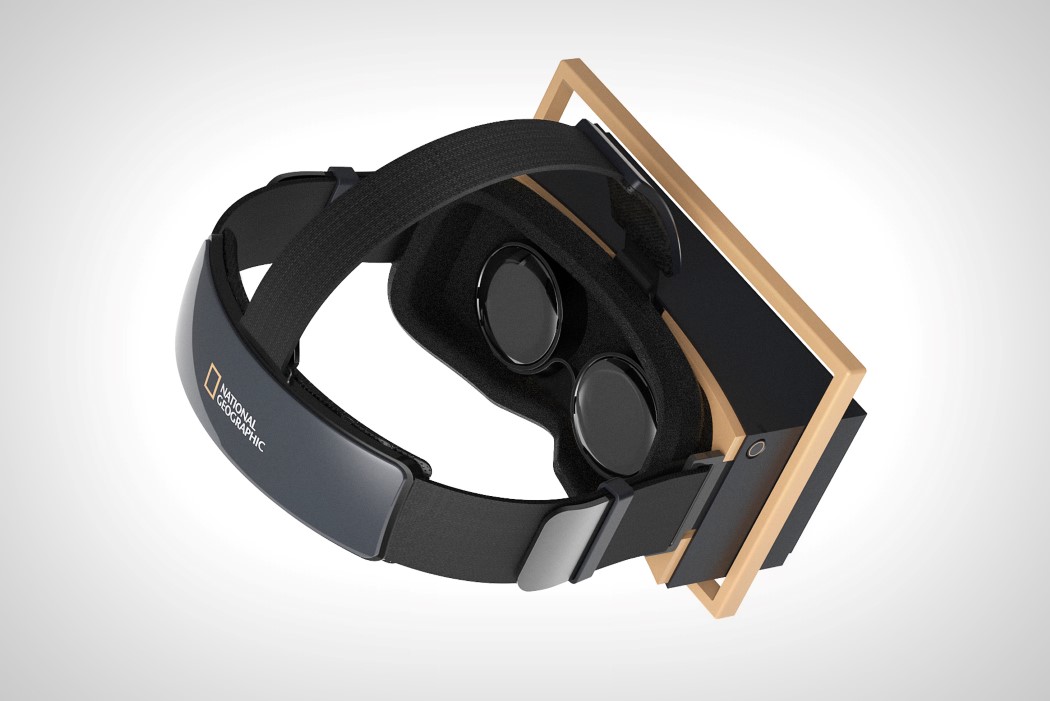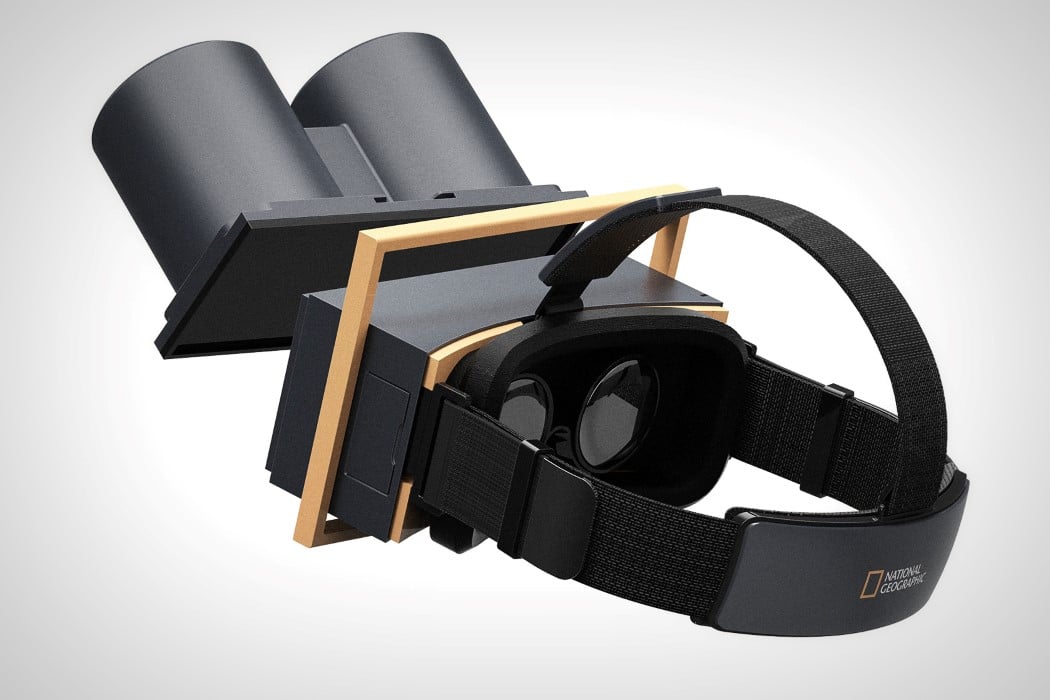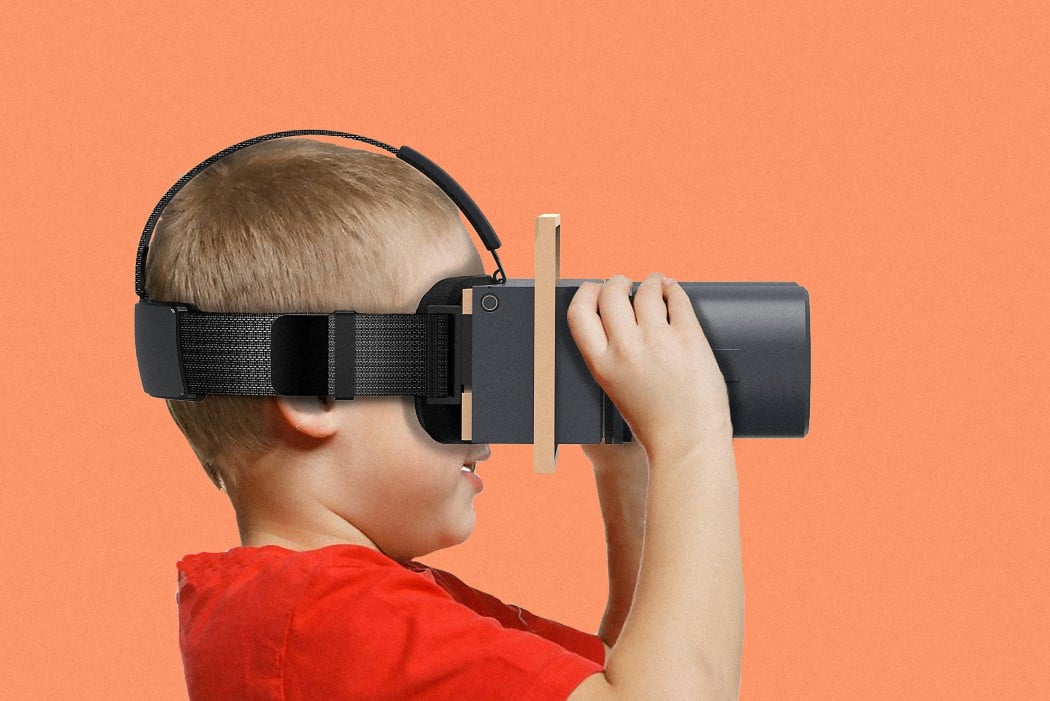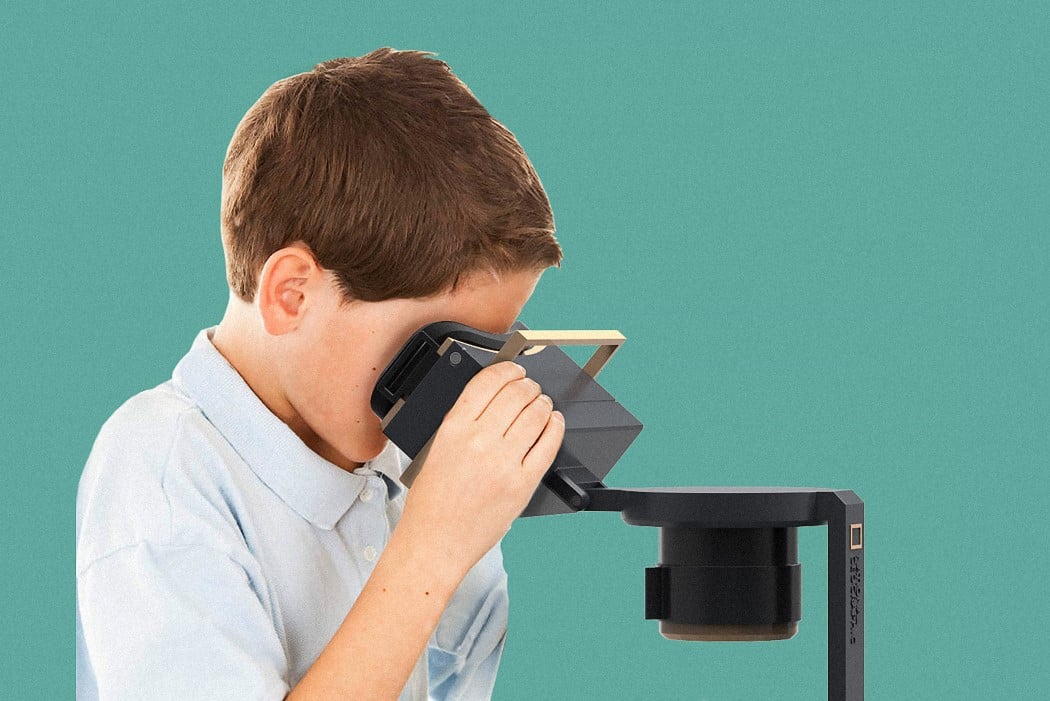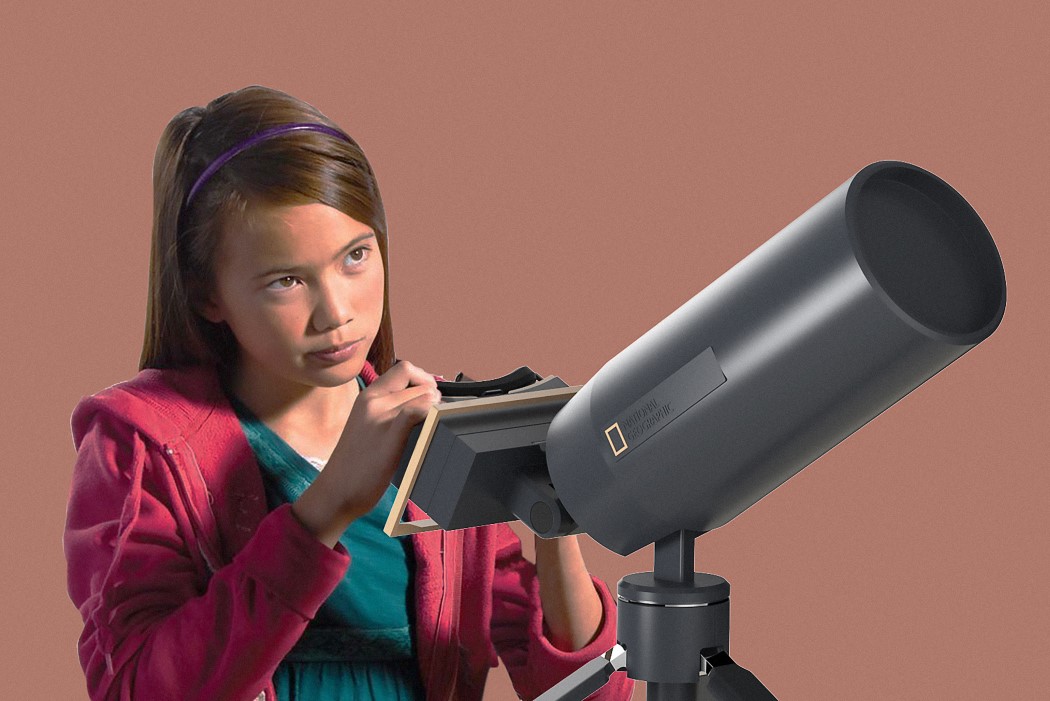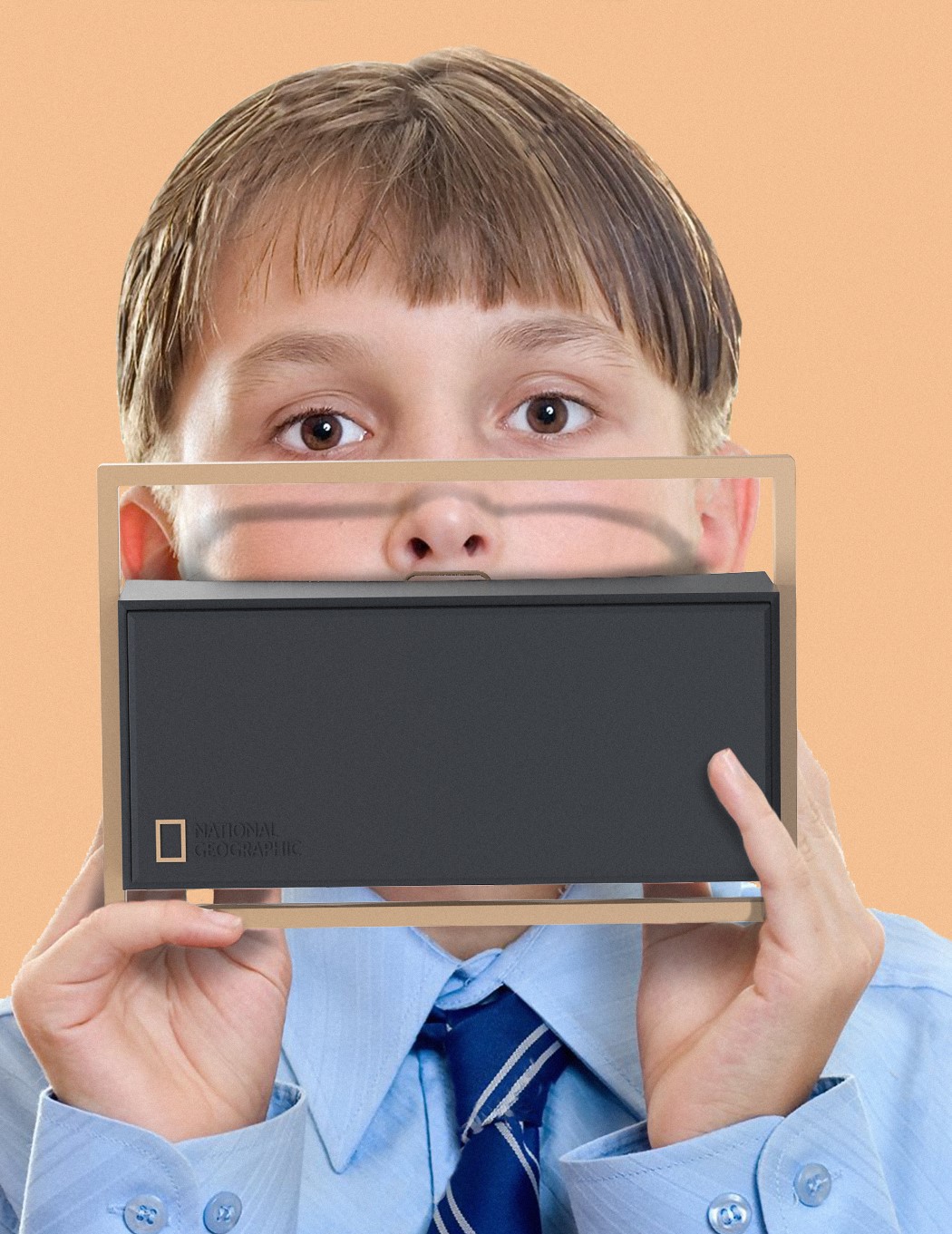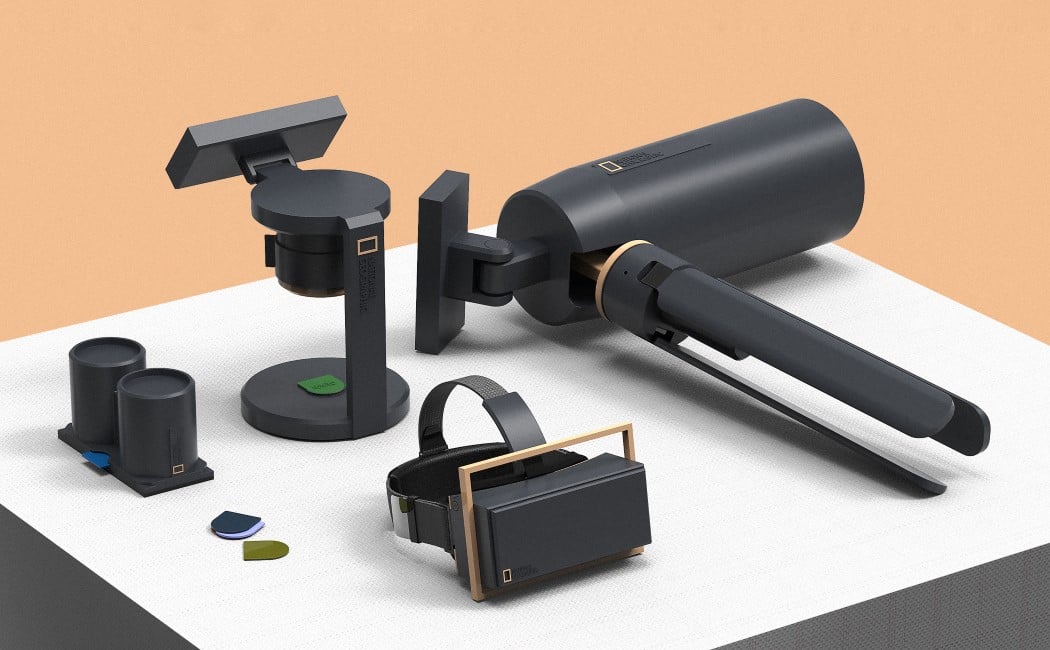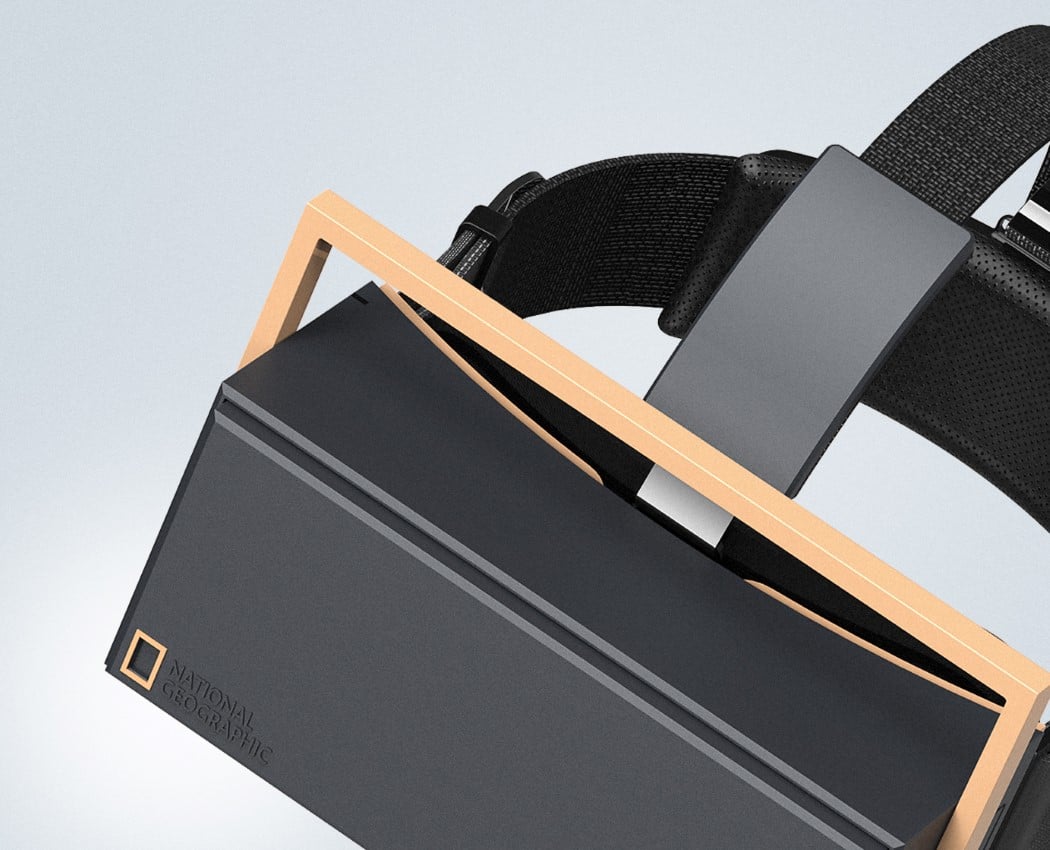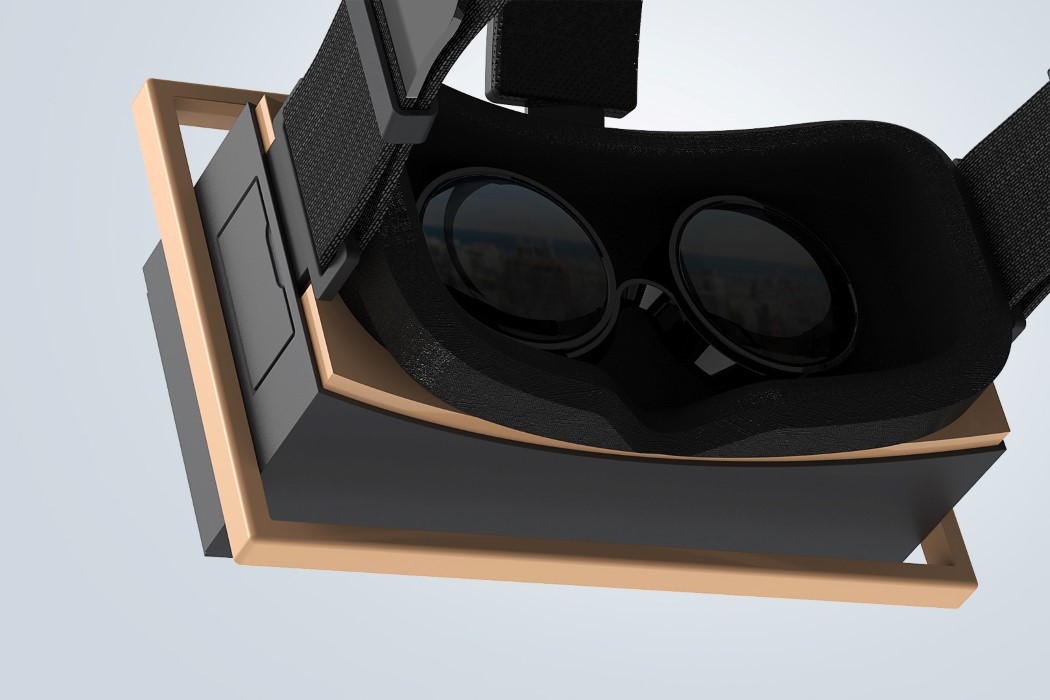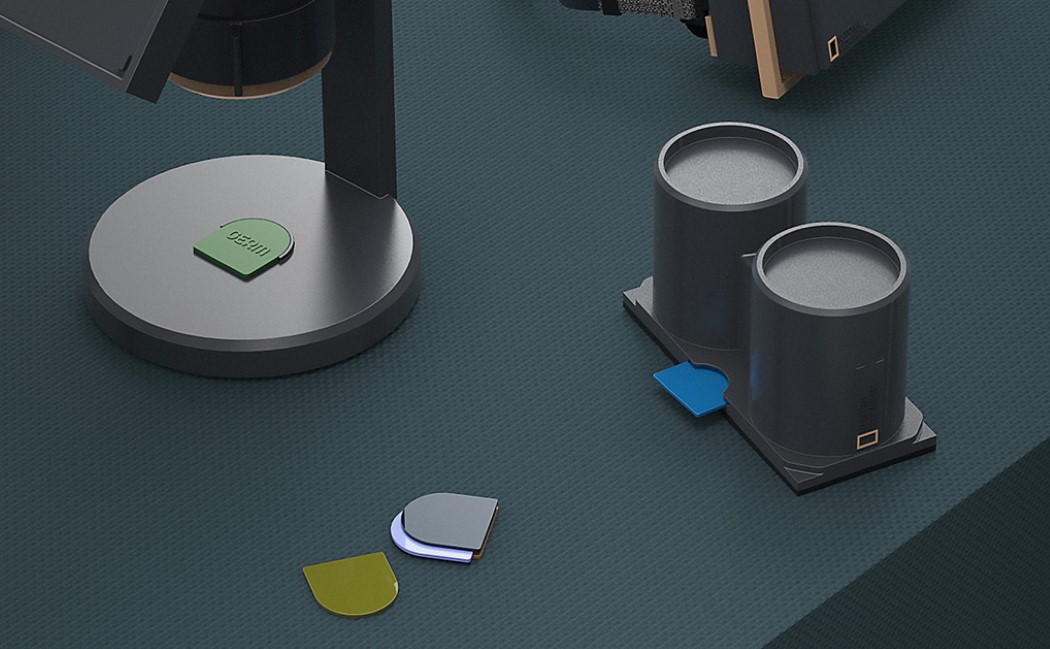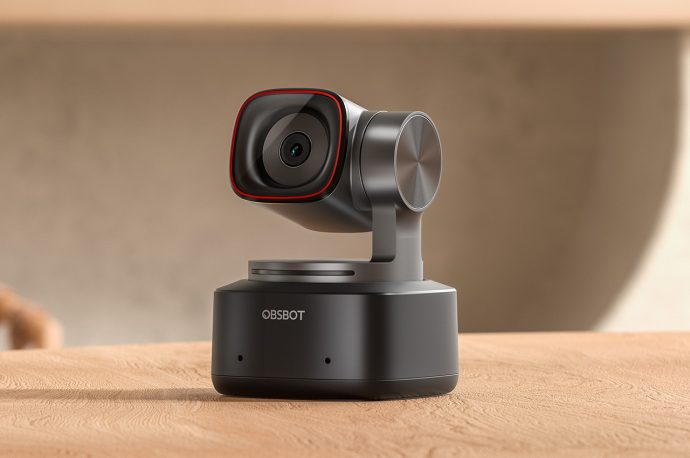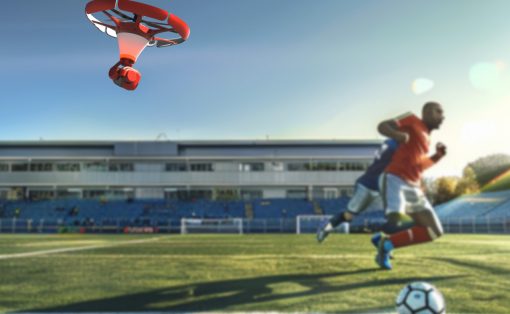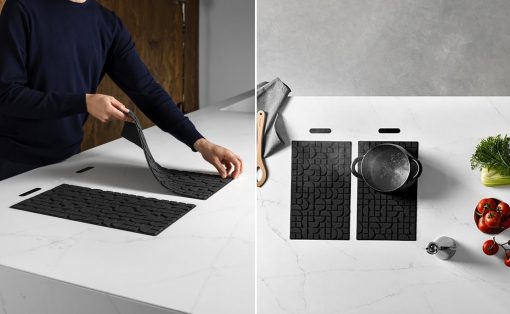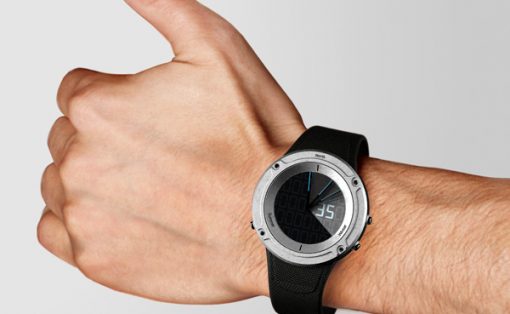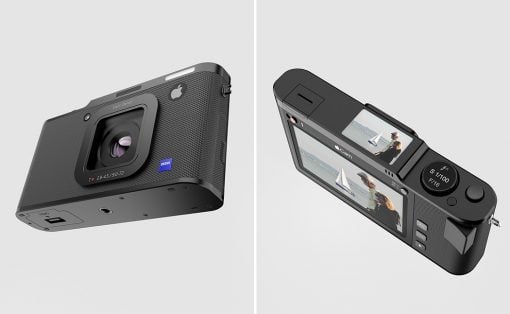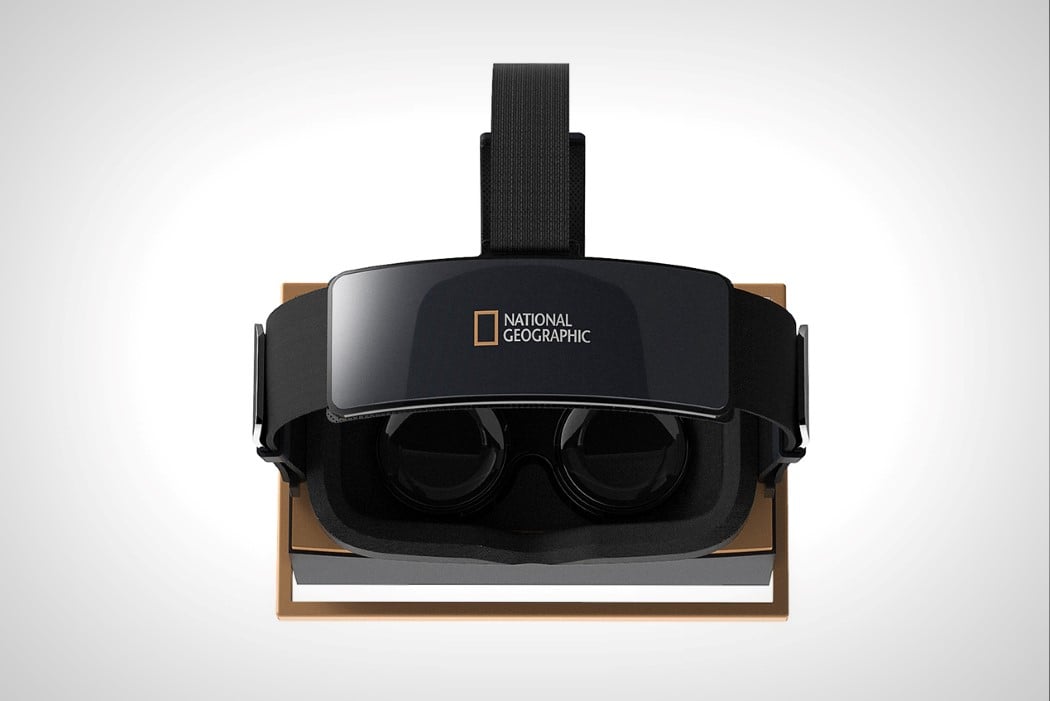
I’ve owned Google Cardboard for about two years now. It’s gathering dust somewhere in my cupboard. The thing with VR is that people thought of just the obvious. 3D content that puts you in a different place. One minute you’re in the arctic, the next minute you’re underwater. Simulation like that does one thing. It makes your eyes see something your body can’t feel, and that looks fantastic, but it also looks unbelievable. The VR Touch Kit for National Geographic takes the approach to VR differently. It makes VR incredibly believable and educational too. The VR Headset comes with three attachments that mimic binoculars, a telescope, and a microscope. Making the aspect of exploration highly believable, the VR headsets pair with these attachments to present VR content that’s relevant to it. You can use the telescope to examine galaxies, for instance… or the microscope to look at micro-organisms. For example you could use your Wii remote to drive a car, but having an attachment that simulates a steering wheel adds a layer of, shall I call it ‘honesty’, to the entire experience.
Anyone can place a screen in front of your eyes and make you view content. The VR Touch kit weaves a much more complex, tactile, and believable experience!
Designer: Junbyung Choi
